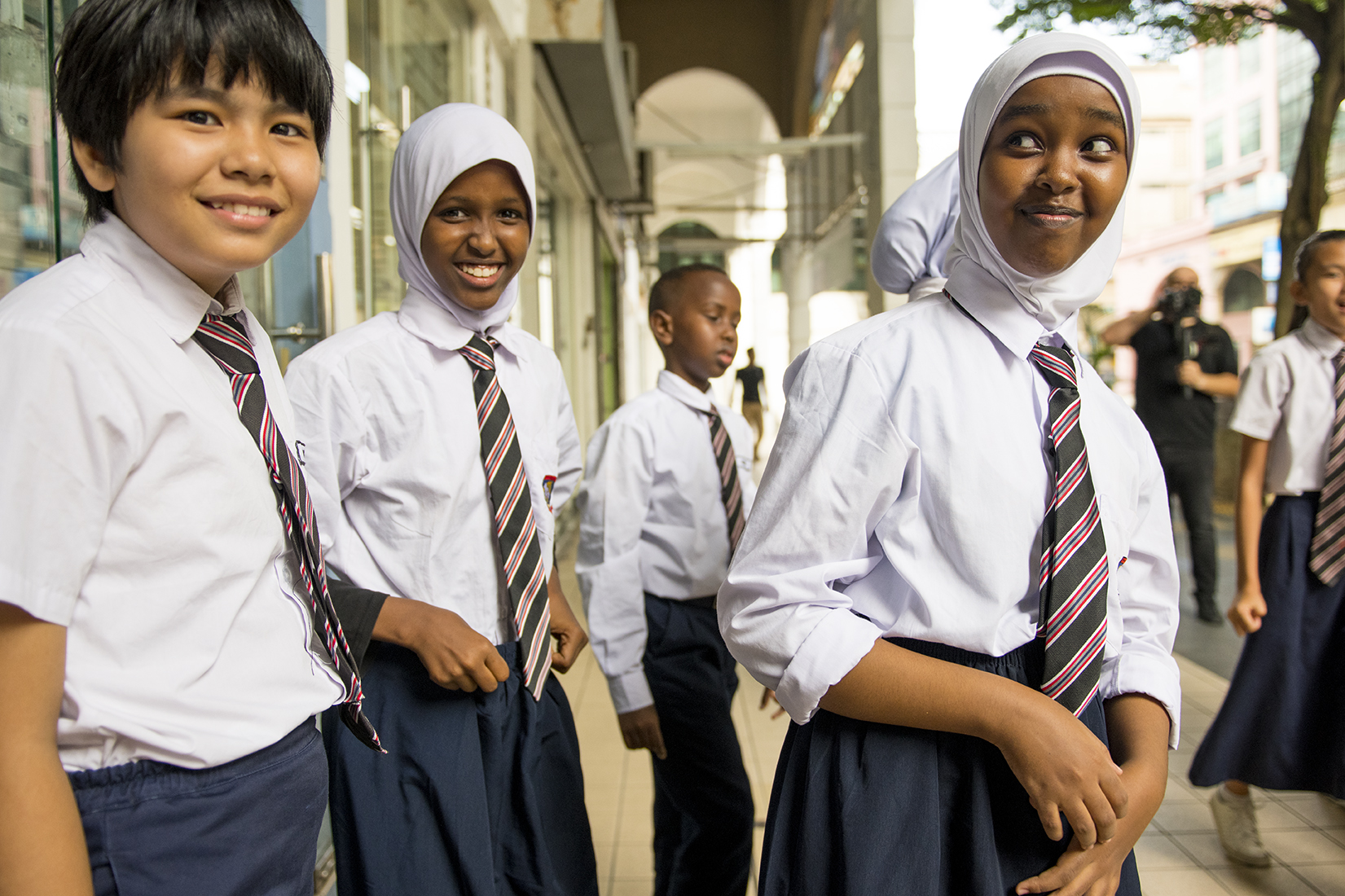Four years after the United Nations established the ambitious Sustainable Development Goals (SDGs), we find ourselves taking stock of our progress and working to inspire action with various stakeholders and potential partners. It was my privilege to represent the youth of the nation of Qatar at the recent High Level Political Forum (HLPF) on Agenda 2030—which took place in July at the United Nations in New York City.
Globally, fewer than half of the world’s children meet minimum math and reading requirements. We live in a time with the highest global refugee population since World War II. As some thrive, enjoying peaceful and prosperous lives, others find themselves living in conflict, unable to access basic needs let alone a quality education. Education is an enabling right, meaning it grants access to other rights as well as affording opportunities to thrive for individuals and society. This should be wholly unacceptable to the global community, and more must be done on an international scale to bolster the right to education.
My country sits in a unique position with its strong commitment to achieving the SDGs locally and globally. We are determined to work towards becoming an equitable society with a knowledge-based economy and are committed to the idea that the rule of law is an asset, not a threat to peace, security and sustainability. Through the leadership and efforts of Her Highness Sheikha Moza bint Nasser, herself a UN-appointed SDG advocate and founder of Education Above All (EAA), we have an unparalleled focus on the right to education—best expressed in SDG4 (ensuring inclusive and equitable quality education), for every child regardless of their circumstances. Indeed, it is a personal and national priority to ensure that no one is left behind. Her Highness’ vision is of a world where every child and young person enjoys the right to quality education, work EAA has been focused on since its founding in 2012.
It is through education that states can promote the rule of law and develop a culture of lawfulness. As young people, we bear the duty to understand our roles and responsibilities in working together to enhance cooperation between nation states, global leaders, international actors and civil society. Our aim must be to make progress on the protection and continuation of education in all situations, particularly in armed conflict and for those who may have never experienced life in a peaceful society governed by the rule of law.
We must work towards ensuring the continuity, permanency and predictability for education in these difficult times. Even though progress has been made in the effort to protect the right to education, we need more stakeholders to join the effort. We call upon multinational corporations to cooperate in sustainable efforts and the media to do their part—particularly in documenting and sharing the stories of the realities so many children face living in conflict in their day-to-day lives. Let us not turn away from the most difficult to reach, for it is they who need our constant attention and support.
I am grateful to have had the privilege of a quality education throughout my life, it is my goal to advocate for the right to education for children and young people around the world, who were born in a context where they are being deprived of their rights, especially the right to education. It must be our responsibility as young people to voice the opinions of the voiceless and to safeguard the right to education for the generations to come. Until we all decide to genuinely cooperate on this global challenge; until walls, greed and self-interest are finally and permanently abandoned; until we safeguard the interests of ordinary people, and especially children and youth to whom the world belongs in the future; until we equip learners with the appropriate knowledge, values, attitudes and behaviors they need to contribute to the improvement and regeneration of their communities, the vision of sustainable development will remain but an illusion.


